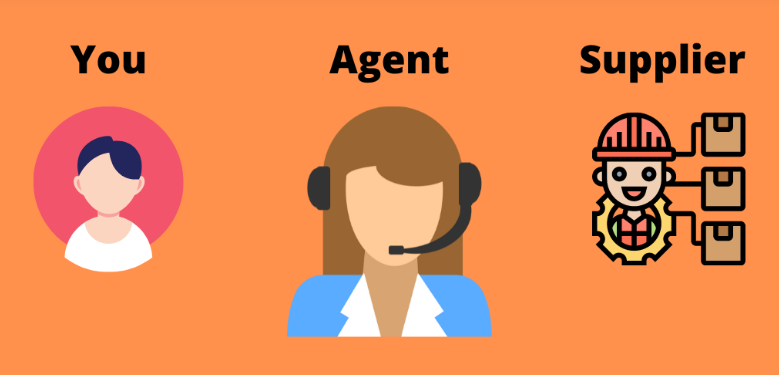When venturing into the world of e-commerce, particularly through platforms like Shopify, selecting the right dropship agent is crucial. A dropship agent acts as a middleman between you and your suppliers, handling inventory, shipping, and sometimes even customer service. This guide will help you navigate the complexities of choosing a dropship agent that aligns with your business goals.
Understanding Dropshipping
What is Dropshipping?
Dropshipping is a retail fulfillment method where a store doesn't keep the products it sells in stock. Instead, when a store sells a product, it purchases the item from a third party and has it shipped directly to the customer. This means you don't have to handle the product directly, which can significantly reduce overhead costs.
Benefits of Dropshipping
Low Startup Costs: You don't need to invest heavily in inventory.
Wide Product Selection: You can offer various products without worrying about storage.
Flexibility: Operate your business from anywhere with an internet connection.
Challenges of Dropshipping
Lower Profit Margins: Competition can drive prices down.
Inventory Issues: Stock levels can fluctuate rapidly.
Quality Control: You depend on suppliers for product quality.

Key Considerations When Choosing a Dropship Agent
1. Reliability and Reputation
Research Supplier Reviews: Look for reviews and testimonials from other merchants. Platforms like Trustpilot or forums like Reddit can provide insights into the reliability of potential agents.
Check Their Track Record: A reliable dropship agent should have a history of timely deliveries and quality service.
2. Product Range
Assess Product Variety: Ensure that the dropship agent offers products that align with your niche. A broader selection can help you cater to diverse customer preferences.
Quality Assurance: Request samples to evaluate product quality before committing to a partnership.
3. Shipping and Fulfillment
Shipping Times: Fast shipping is critical for customer satisfaction. Ensure your dropship agent can meet your delivery expectations.
Shipping Costs: Understand how shipping costs will affect your pricing strategy. Some agents may offer free shipping options that can enhance your competitiveness.
4. Integration with Shopify
Seamless Integration: Choose an agent that easily integrates with Shopify to streamline order processing and inventory management.
Automation Features: Look for tools that automate order fulfillment, tracking updates, and inventory management to save time.
5. Communication and Support
Responsive Customer Service: Evaluate how quickly and effectively the dropship agent responds to inquiries. Good communication is essential for resolving issues promptly.
Support Channels: Check if they offer multiple support channels (e.g., email, chat, phone) for convenience.
6. Pricing Structure
Transparent Pricing Models: Understand all fees involved, including shipping costs, membership fees, or hidden charges.
Competitive Pricing: Compare prices with other agents to ensure you’re getting a fair deal while maintaining healthy profit margins.

Evaluating Potential Dropship Agents
Creating a Shortlist
Compile a list of potential dropship agents based on your research. Consider factors such as reliability, product range, shipping capabilities, and integration options with Shopify.
Conducting Interviews
Reach out to shortlisted agents for interviews. Prepare questions that address your key concerns:
- What are your average shipping times?
- How do you handle returns and refunds?
- Can you provide references from current clients?
Testing the Waters
Before fully committing, consider placing small test orders to evaluate:
- Order processing speed
- Product quality
- Shipping times
Making Your Decision
After evaluating potential dropship agents based on the criteria above, weigh their strengths and weaknesses against your business needs. Choose an agent that aligns best with your operational goals and customer expectations.
Conclusion
Choosing the right dropship agent for your Shopify store is pivotal in establishing a successful e-commerce business. By considering reliability, product range, shipping efficiency, integration capabilities, communication support, and pricing structure, you can make an informed decision that supports your long-term growth strategy. Invest time in researching and testing potential agents; this foundational step will pay dividends as you build your online retail presence.


